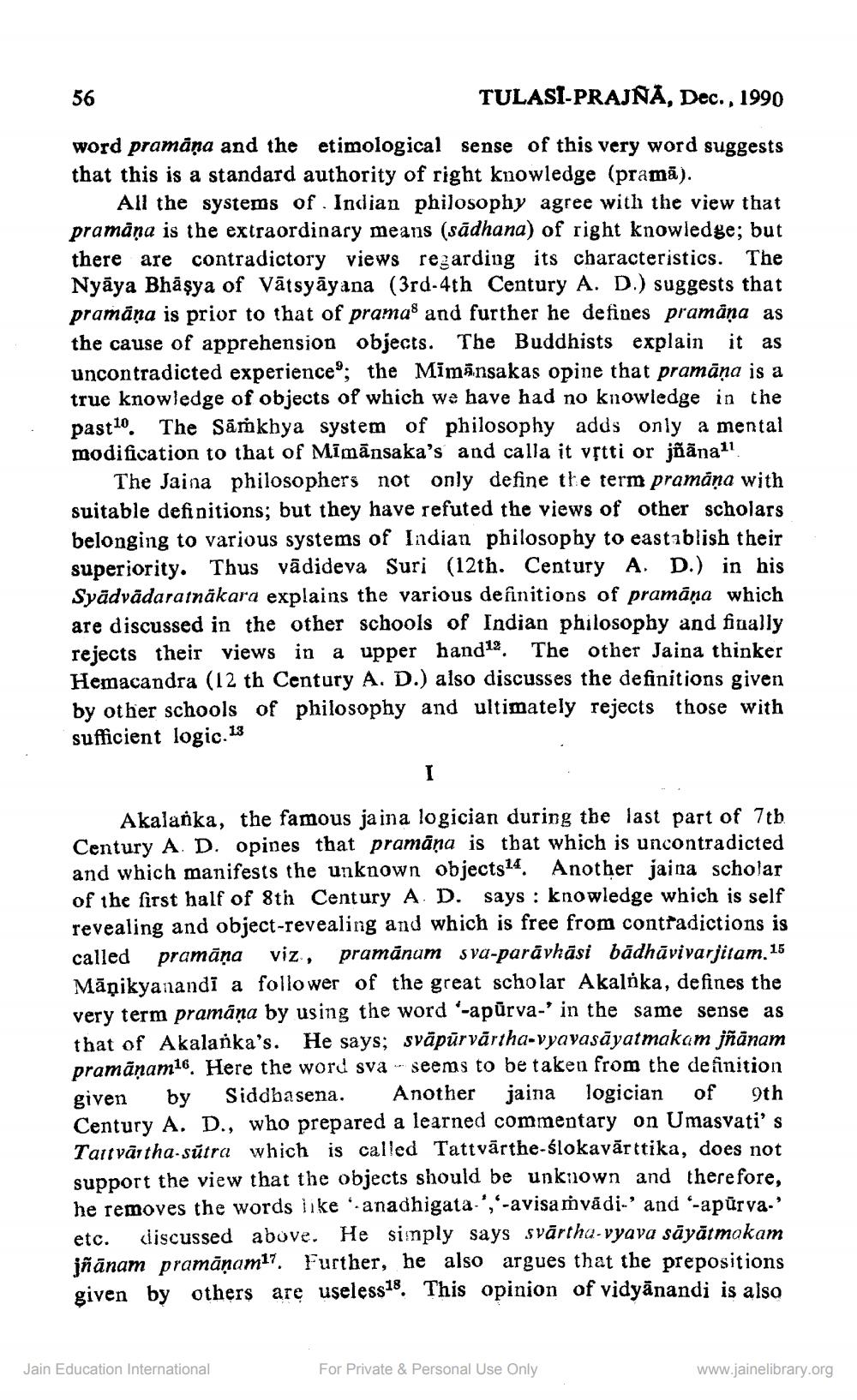________________
56
TULASI-PRAJNA, Dec., 1990
word pramāna and the etimological sense of this very word suggests that this is a standard authority of right knowledge (pramā).
All the systems of Indian philosophy agree with the view that pramana is the extraordinary means (sādhana) of right knowledge; but there are contradictory views regarding its characteristics. The Nyāya Bhāşya of Vātsyāyana (3rd-4th Century A. D.) suggests that pramāņa is prior to that of pramas and further he defines pramâna as the cause of apprehension objects. The Buddhists explain it as uncontradicted experience®; the Mimānsakas opine that pramāņa is a true knowledge of objects of which we have had no knowledge in the past10. The Sārkhya system of philosophy adds only a mental modification to that of Mīmānsaka's and calla it vstti or jñānal!
The Jaina philosophers not only define the term pramāņa with suitable definitions; but they have refuted the views of other scholars belonging to various systems of Indian philosophy to eastablish their superiority. Thus vādideva Suri (12th. Century A. D.) in his Syadvādaratnākara explains the various definitions of pramāņa which are discussed in the other schools of Indian philosophy and finally rejects their views in a upper hand1%. The other Jaina thinker Hemacandra (12 th Century A. D.) also discusses the definitions given by other schools of philosophy and ultimately rejects those with sufficient logic.13
Akalanka, the famous ja ina logician during the last part of 7th Century A D opines that pramāņa is that which is uncontradicted and which manifests the unknown objects14. Another jaina scholar of the first half of 8th Century A D. says : knowledge which is self revealing and object-revealing and which is free from contradictions is called pramāņa viz., pramānum sva-parāvhāsi bādhāvivarjitam. 15 Māņikyanandi a follower of the great scholar Akalóka, defines the very term pramāņa by using the word '-apūrva-' in the same sense as that of Akalanka's. He says; svāpūrvārtha-vyavasāyatmakam jñānam pramānam16. Here the word sva - seems to be taken from the definition given by Siddbasena. Another jaina logician of 9th Century A. D., who prepared a learned commentary on Umasvati's Tautyârtha-sútra which is called Tattvārthe-ślokavārttika, does not support the view that the objects should be unknown and therefore, he removes the words like anachigata ','-avisamvādi-' and '-apūrva.' etc. discussed above. He simply says svārtha-vyava sāyātmokam jñānam pramāṇam17. Further, he also argues that the prepositions given by others are useless18. This opinion of vidyānandi is also
Jain Education International
For Private & Personal Use Only
www.jainelibrary.org




